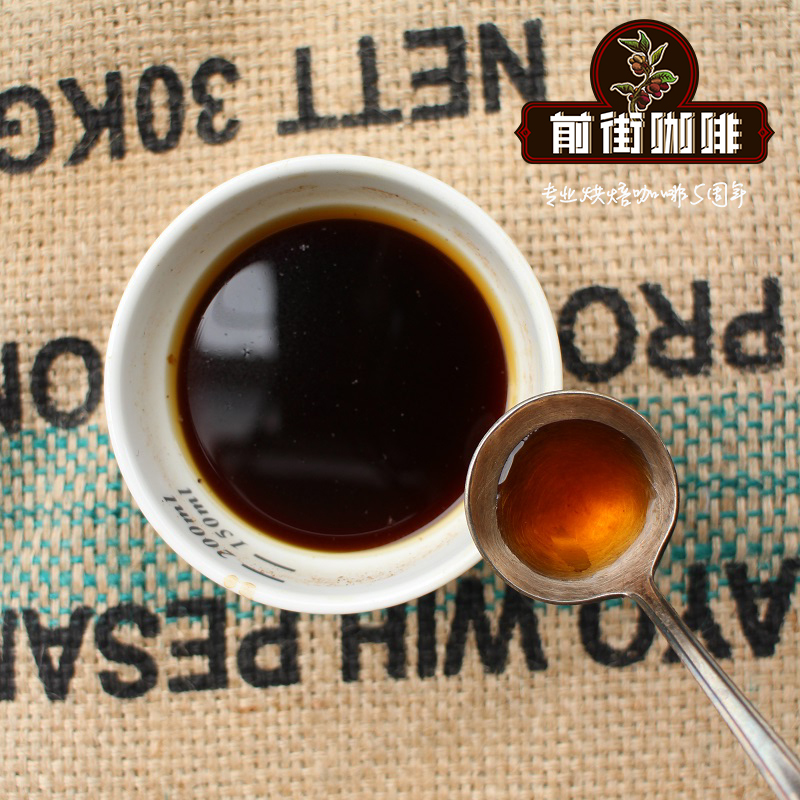Where is the Rwandan coffee? introduction to the flavor of Rwandan coffee? what kind of coffee do you have in Rwanda?

Professional coffee knowledge exchange more coffee bean information please follow the coffee workshop (Wechat official account cafe_style)
Rwanda is a landlocked country located in east-central Africa. It is bordered by Tanzania to the east, Burundi to the south, Congo (DRC) to the west and northwest, and Uganda to the north. It is mountainous and is known as "the country of a thousand hills".
Rwanda is one of the smallest countries in Africa (smaller than little-known Burundi), the most densely populated in Africa (none), and one of the least developed countries in the world identified by the United Nations.
Known as the "land of thousands of hills", Rwanda has a high-altitude mountain environment and fertile volcanic soil, as well as abundant precipitation, has a climate conducive to the growth of coffee trees. Most of the coffee varieties grown in Rwanda are bourbon (one of the native trees of Arabica coffee beans). The advantages of varieties and excellent natural conditions should have produced high-quality coffee, but the quality of coffee produced by Lu is not outstanding, and its status in the coffee world is low, and few people care about it. And why is that?
Tracing back to its origin, coffee was introduced to Rwanda by German missionaries in 1904. The first coffee tree was planted in Mibirizi Monastery in Cyangugu province, so Mibirizi became the name of the first coffee variety in Rwanda. Coffee cultivation then extended to the entire Kivu region, and then to the whole of Rwanda.
After World War I, the trustee committee of the League of Nations revoked Germany's colonial right to Rwanda and handed over the trust to Belgium. As a result, like the policy in Burundi, the Belgian colonists made coffee a compulsory crop in Rwanda. As the Belgian colonists strictly controlled coffee exports and imposed high taxes on coffee farmers, Rwanda tended to produce low-cost coffee with high yield and low quality. At the same time, the lack of infrastructure and even a single washing plant do not have the conditions to produce high-quality coffee products. So Rwandan coffee does not have a high reputation and is generally sold to instant coffee companies or low-cost coffee blending companies.
In the 1990s, coffee became Rwanda's most important export, but the Rwandan genocide in 1994 dealt a heavy blow to Rwandan coffee factories. Coupled with the subsequent low global coffee prices, the coffee industry in Rwanda has become even worse.
After the civil war, Rwanda has stepped up its development in the cultivation and trade of coffee. Since 1994, more and more people in the world have begun to pay attention to this poor country, and some of them have assisted in the construction of coffee washing stations. The United States Agency for International Development (USAID) helped build the first washing station in Rwanda in 2004 and trained farmers through coffee cooperatives to improve planting and handling techniques. With washing stations (to date, there are more than 300 in Rwanda), improved cup testing and planting techniques, high quality bourbon coffee and higher prices for boutique coffee, farmers have a strong desire to improve the quality of their coffee.
In recent years, the Rwandan government has also taken positive measures to set up coffee production cooperatives in various places, providing technical guidance and financial support to farmers, and even providing medical insurance, advance tuition fees, loans, and so on to cooperative members. These are a bit like domestic rural credit cooperatives, where farmers can also use coffee fruits to repay loans. The government hopes to promote domestic economic development to a certain extent through the coffee industry.
With the improvement and improvement of Rwandan coffee in various aspects, its quality has also made a qualitative leap. In the 2008 COE contest held by the American Fine Coffee Association SCAA, Arnomega, Rwanda, beat the Blue Mountain 1 of Jamaica and Mantenin G1 of Sumatra to defend the title. With its excellent quality, Rwandan coffee has won a place in the coffee world and won more attention.
The taste of Rwandan coffee is described as "grass aroma" with tropical climate characteristics. In addition to the sweetness of fruit, this coffee also gives people a feeling of freshness, clearness and freshness. Bourbon coffee grown in Rwanda is amazing for its sweet fruit, full-bodied, unrestrained and lingering aftertaste. This coffee has a delicious, citrus sweetness and a deep chocolate color, with red apples, cherries, cinnamon and honey, high sweetness and balance, cinnamon, almonds and chocolate finish.
However, some coffee makers will criticize their "The Potato Defect"-a coffee defect unique to Rwanda and neighboring Burundi.
When the coffee fruit is infected by an unknown bacteria, and the bacteria enter the coffee peel, it will have a bad effect, which is harmless to people's health, but when the infected coffee beans are roasted and ground, they will release some undue pungent odors. It smells like a peeled potato. The bacteria only affect certain coffee beans, so as long as they are picked out from a whole bag of coffee beans before grinding, they will not affect other coffee beans. It is very tricky to eradicate this germ. after the raw beans are processed, it is impossible to identify the infected coffee beans, and it is difficult for coffee roasters to pick them out before roasting, and even after the roasting is finished, the beans are difficult to be found. the defective smell was not detected until it was ground into powder. The only possibility is to pick the coffee fruit with bacteria before treatment, and the skin of the coffee fruit with bacteria is obviously damaged.
Coffee is grown all over Rwanda, and several major producing areas have different flavors.
Most of the excellent coffee in Rwanda comes from the south and west, the Huye mountains and Nyamagabe regions in the south have floral and citrus flavors due to their high altitude, while the Nyamasheke region on the bank of Lake Kivu in the west is rich in high-quality coffee with rich, fragrant and juicy taste.
The eastern region is not as high above sea level as other areas, but there is also high-quality coffee grown in the eastern Ngoma Lake District and Nyagatare region (in the northeastern region), where the coffee has a distinct chocolate and fruity flavor.
The coffee produced in the northern region is well balanced, with citrus, nut and prominent caramel flavor as the main flavor. The Musasa cooperative in the Rushashi producing area here, which is famous for its success in cup testing competitions in previous years, is one of the most well-known cooperatives in the producing area.
In recent years, Rwandan coffee is becoming more and more popular in the international market. In 2010, Rwanda also became the first African country to host the COE (short for Cup Of Excellence). Rwanda plans to export 3000 tons of coffee this year, further increasing coffee production to meet the growing market demand. Starbucks, the world's largest coffee and beverage retailer, has also partnered with the Rwandan government to import Rwandan coffee.
Hope that Rwanda Coffee can better get out of this troubled land, just like the logo of Rwanda Coffee, a brown pigeon rises from the coffee cup against the line "Cup of Hope". Indeed, coffee places the hopes of the people of Rwanda. They hope to increase coffee exports to promote the country's economic development, and they also hope that the two major tribes, the Hutu and the Tutsi, who once killed each other, will work together to grow coffee, eliminate gratitude and hatred, and jointly build a better tomorrow.
Qianjie coffee: Guangzhou bakery, the store is small but a variety of beans, you can find a variety of unknown beans, but also provide online store services. Https://shop104210103.taobao.com
Important Notice :
前街咖啡 FrontStreet Coffee has moved to new addredd:
FrontStreet Coffee Address: 315,Donghua East Road,GuangZhou
Tel:020 38364473
- Prev

What is the certification of authentic Jamaican Blue Mountain Coffee? The flavor and taste of Blue Mountain Coffee? Front street coffee
Professional coffee knowledge exchange more coffee bean information please follow the coffee workshop (Wechat official account cafe_style) authentic Jamaica Blue Mountain Coffee have what certification? The flavor and taste of Blue Mountain Coffee? The price of the authentic Jamaican Blue Mountain Coffee on the front street? Front street Jamaica blue mountain coffee beans authentic BlueMount blue mountain NO.1 coffee 100g roasted blue mountain coffee is the world
- Next

How do you drink coffee in Rwanda? what kind of beans are Rwandan coffee beans?
Professional coffee knowledge exchange more coffee bean information please follow coffee workshop (Wechat official account cafe_style) Rwanda is a small mountainous country located in the equator in eastern Africa, covering an area of 26000 square kilometers, more than 10 million of the population depends on coffee exports for more than half of its economy. The genocide in Rwanda in 1994 shocked the world. The film Hotel Rwanda tells the story of this history.
Related
- Detailed explanation of Jadeite planting Land in Panamanian Jadeite Manor introduction to the grading system of Jadeite competitive bidding, Red bid, Green bid and Rose Summer
- Story of Coffee planting in Brenka region of Costa Rica Stonehenge Manor anaerobic heavy honey treatment of flavor mouth
- What's on the barrel of Blue Mountain Coffee beans?
- Can American coffee also pull flowers? How to use hot American style to pull out a good-looking pattern?
- Can you make a cold extract with coffee beans? What is the right proportion for cold-extracted coffee formula?
- Indonesian PWN Gold Mandrine Coffee Origin Features Flavor How to Chong? Mandolin coffee is American.
- A brief introduction to the flavor characteristics of Brazilian yellow bourbon coffee beans
- What is the effect of different water quality on the flavor of cold-extracted coffee? What kind of water is best for brewing coffee?
- Why do you think of Rose Summer whenever you mention Panamanian coffee?
- Introduction to the characteristics of authentic blue mountain coffee bean producing areas? What is the CIB Coffee Authority in Jamaica?

